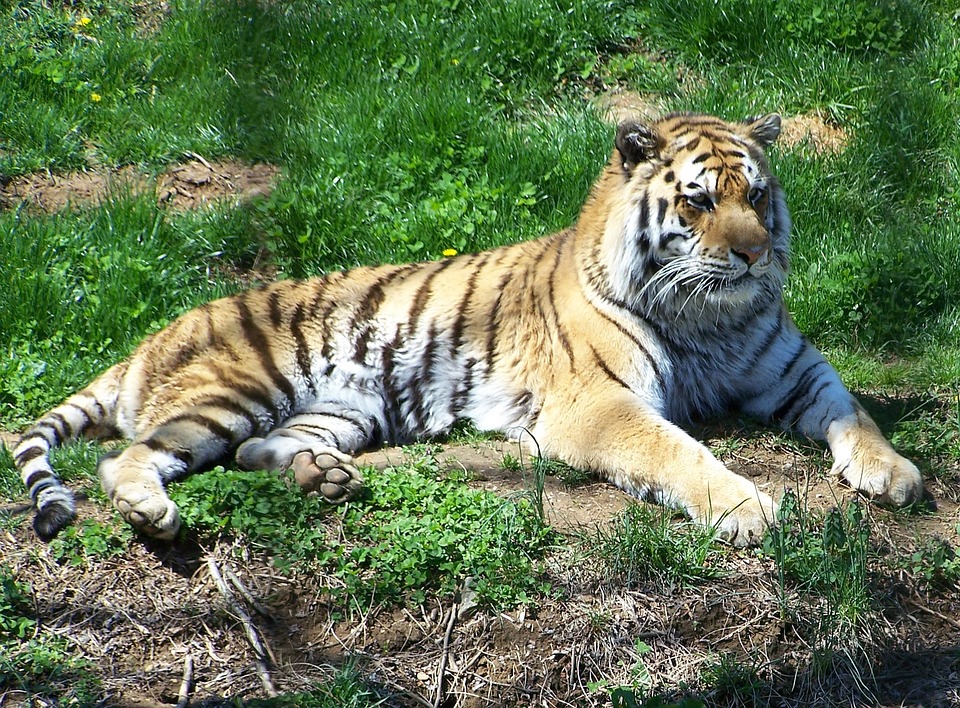This comprehensive guide aims to shed light on the safety and potential benefits of peas for cats. We will delve into the nutritional profile of peas, explore the potential risks and benefits of incorporating them into your feline companion's diet, and offer practical advice on how to introduce peas safely.
Part 1: Understanding the Nutritional Value of Peas

1.1. A Protein Source, But Not the Primary One
Peas offer a moderate amount of protein, a crucial nutrient for cats. Protein contributes to muscle development, repair, and maintenance, as well as supporting healthy skin and fur. However, it's important to remember that peas should not be the primary source of protein for your cat. They lack certain amino acids essential for cats, like taurine, which is crucial for heart and eye health.
1.2. Fibre for Digestive Harmony
Peas are a good source of dietary fibre, which plays a vital role in digestive health. Fibre adds bulk to the stool, promoting regular bowel movements and preventing constipation. It can also help regulate blood sugar levels, making peas a potentially beneficial addition for cats prone to diabetes.
1.3. Vitamins and Minerals for Overall Well-being
Peas provide a modest amount of various vitamins and minerals, including:
- Vitamin A: Essential for healthy vision, immune function, and maintaining skin health.
- Vitamin C: Supports immune function, wound healing, and collagen production.
- Vitamin K: Crucial for blood clotting and strong bones.
- Potassium: Plays a crucial role in regulating fluid balance, muscle function, and nerve transmission.
- Iron: Essential for carrying oxygen throughout the body.
- Other Minerals: Peas also contain small amounts of magnesium, phosphorus, and zinc, which are important for various bodily functions.
Part 2: Potential Risks of Feeding Peas to Cats

2.1. Digestive Upset: The Case for Moderation
While generally well-tolerated, peas can sometimes cause digestive upset in cats, especially if consumed in large quantities. Symptoms might include diarrhoea, vomiting, gas, or bloating. This is primarily due to the high fibre content, which can be challenging for some feline digestive systems.
2.2. Choking Hazard: Size Matters
Whole peas, particularly raw or dried ones, pose a choking hazard, especially for smaller cats or kittens. The round shape and size can obstruct their airways. Always ensure peas are cooked or frozen before offering them to your cat, as this softens them and reduces the choking risk.
2.3. Allergic Reactions: A Rare but Serious Possibility
Although rare, cats can be allergic to peas. Symptoms of a pea allergy might include skin rashes, itching, digestive upset, and, in severe cases, anaphylaxis. If you suspect your cat might be allergic to peas, discontinue feeding them and consult your veterinarian immediately.
2.4. Nutritional Imbalances: The Importance of a Balanced Diet
Peas should never constitute a primary food source for cats. Relying solely on peas can lead to nutritional deficiencies, as they lack crucial nutrients like taurine, arachidonic acid, and specific vitamins and minerals essential for optimal feline health.
Part 3: Exploring the Potential Benefits of Peas for Cats
3.1. Weight Management: A Low-Calorie Treat
Peas are relatively low in calories, making them a potentially helpful addition to a weight management plan for overweight cats. The high fibre content can also contribute to a feeling of fullness, helping to curb overeating.
3.2. Dental Hygiene: A Natural Teeth Cleaning Aid
Frozen peas can act as natural teeth cleaning tools for cats. Their texture and hardness help scrape away plaque and tartar buildup, promoting healthier teeth and gums. However, it is important to supervise your cat during this activity and ensure they do not swallow the peas whole.
3.3. Enriching Mealtimes: Adding Variety and Excitement
Peas can add variety and excitement to your cat's meals, making mealtimes more engaging. Cats are naturally curious and appreciate changes in their routine. Offering a few peas as a treat can pique their interest and make mealtime more enjoyable.
Part 4: Introducing Peas Safely: A Step-by-Step Guide
4.1. Moderation is Key: Start Small, Observe Carefully
Always start by offering a small amount of peas, typically just a few at first. Observe your cat for any signs of digestive upset or allergic reactions. If they tolerate the peas well, you can gradually increase the amount over time, based on their individual needs and preferences.
4.2. Cooking or Freezing: Ensuring Safe and Digestible Treats
Cooked or frozen peas are the safest options for cats. Cooking softens the peas, making them easier to digest and reducing the risk of choking. Avoid feeding raw peas, as they are harder to digest and may pose a choking hazard.
4.3. No Pea Pods: A Strict Prohibition
Pea pods are not suitable for cats and should be avoided entirely. They contain indigestible fibres that can cause digestive upset and potentially lead to intestinal blockages.
4.4. Supervise Feeding: Ensuring Safe Consumption
Always supervise your cat when they are eating peas, especially when they are first introduced. This allows you to monitor their reaction and intervene if necessary. Ensure they chew the peas properly and do not swallow them whole.
Part 5: A Closer Look at Canned Peas: Suitable but with Precautions
Canned peas are generally safe for cats if they are unsalted and free from any added seasonings, preservatives, or artificial ingredients. Choose plain, canned peas labelled as "no salt added" or "unsalted."
Part 6: Can Cats Eat Pea Shoots? A Delectable but Optional Treat
Pea shoots, the young shoots of the pea plant, can be a healthy treat for cats in moderation. They provide a good source of vitamin C, iron, and fibre. However, ensure they are washed thoroughly before offering them to your cat to remove any potential contaminants.
Part 7: When to Seek Veterinary Advice: Recognizing Signs of Concern
If your cat experiences any adverse reactions after eating peas, such as:
- Persistent diarrhoea or vomiting
- Skin rashes or itching
- Difficulty breathing or wheezing
- Loss of appetite or lethargy
- Choking or gagging
Consult your veterinarian immediately.
Part 8: Frequently Asked Questions (FAQs)
8.1. Can kittens eat peas?
It is generally safe to introduce peas to kittens after they have transitioned to solid food. However, start with very small amounts and observe closely for any signs of intolerance.
8.2. How many peas can a cat eat?
There is no one-size-fits-all answer. The appropriate amount will vary based on the cat's size, age, health, and individual tolerance. It's best to start with a few peas and increase the amount gradually as tolerated.
8.3. Are peas good for a cat's coat?
While peas contain vitamins and minerals that contribute to overall health, they are not a primary source of nutrients for a healthy coat. Ensure your cat receives a balanced diet with appropriate protein and fat sources for optimal coat health.
8.4. Can peas help cats lose weight?
Peas can be a helpful addition to a weight management plan for overweight cats. Their low-calorie content and high fibre content can aid in satiety and regulate digestion. However, it is crucial to consult with your veterinarian to develop a tailored weight management plan for your cat.
8.5. Are peas a good source of taurine for cats?
No, peas do not contain significant amounts of taurine. You should provide your cat with commercially formulated cat food that contains adequate taurine.
8.6. Are frozen peas better than fresh peas for cats?
Frozen peas are generally preferred, as they are softer and easier for cats to digest than fresh peas.
8.7. Can I give peas to my pregnant or nursing cat?
It is best to consult your veterinarian before feeding peas to a pregnant or nursing cat. They may recommend avoiding peas during these stages to ensure the mother cat and kittens receive optimal nutrition.
8.8. Can I give peas to my cat with kidney disease?
It is crucial to consult your veterinarian before feeding peas to a cat with kidney disease. Peas contain phosphorus, which can be problematic for cats with kidney issues. Your veterinarian can advise on appropriate dietary modifications.
8.9. Can I give peas to my cat with diabetes?
Peas can potentially be beneficial for cats with diabetes due to their high fibre content, which can help regulate blood sugar levels. However, consult your veterinarian before incorporating peas into the diet of a diabetic cat. They can advise on appropriate portion sizes and dietary adjustments based on your cat's specific needs.
By following this guide, you can make informed decisions about incorporating peas into your cat's diet. Remember to always prioritize your feline companion's health and safety, and consult with your veterinarian for personalized advice.
Everyone is watching

Are Cat Ribs Flexible? Understanding Their Anatomy
CATS & KITTENSThis article delves into the fascinating world of feline anatomy, exploring the flexibility of cat ribs and ho...

Can Cats Eat Bananas? (Everything You Need to Know)
CATS & KITTENSThis article dives into the intriguing question of whether cats can safely enjoy the sweet, yellow fruit, bana...

Cat Lifespan: How Long Do Cats Live?
CATS & KITTENSThis comprehensive guide explores the factors influencing the lifespan of our feline companions, providing ins...

Can Cats Get COVID-19? What You Need to Know
CATS & KITTENSThis article will delve into the fascinating world of feline COVID-19 susceptibility. We'll explore whether ca...

Can Cats Eat Eggs? A Complete Guide to Egg Safety for Your Feline Friend
CATS & KITTENSWhen it comes to treating our furry companions, we all want to ensure we're doing what's best for them. Eggs...
